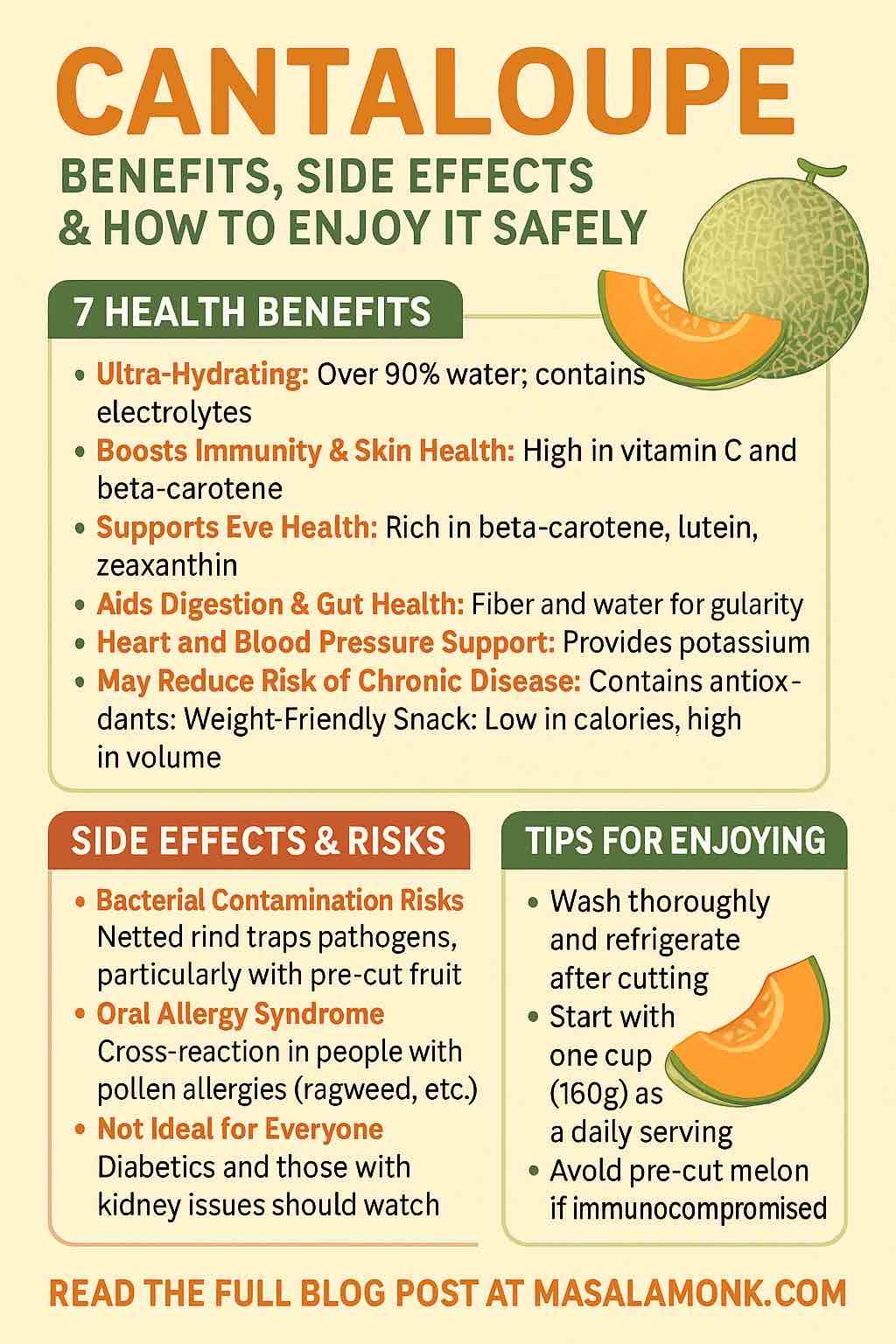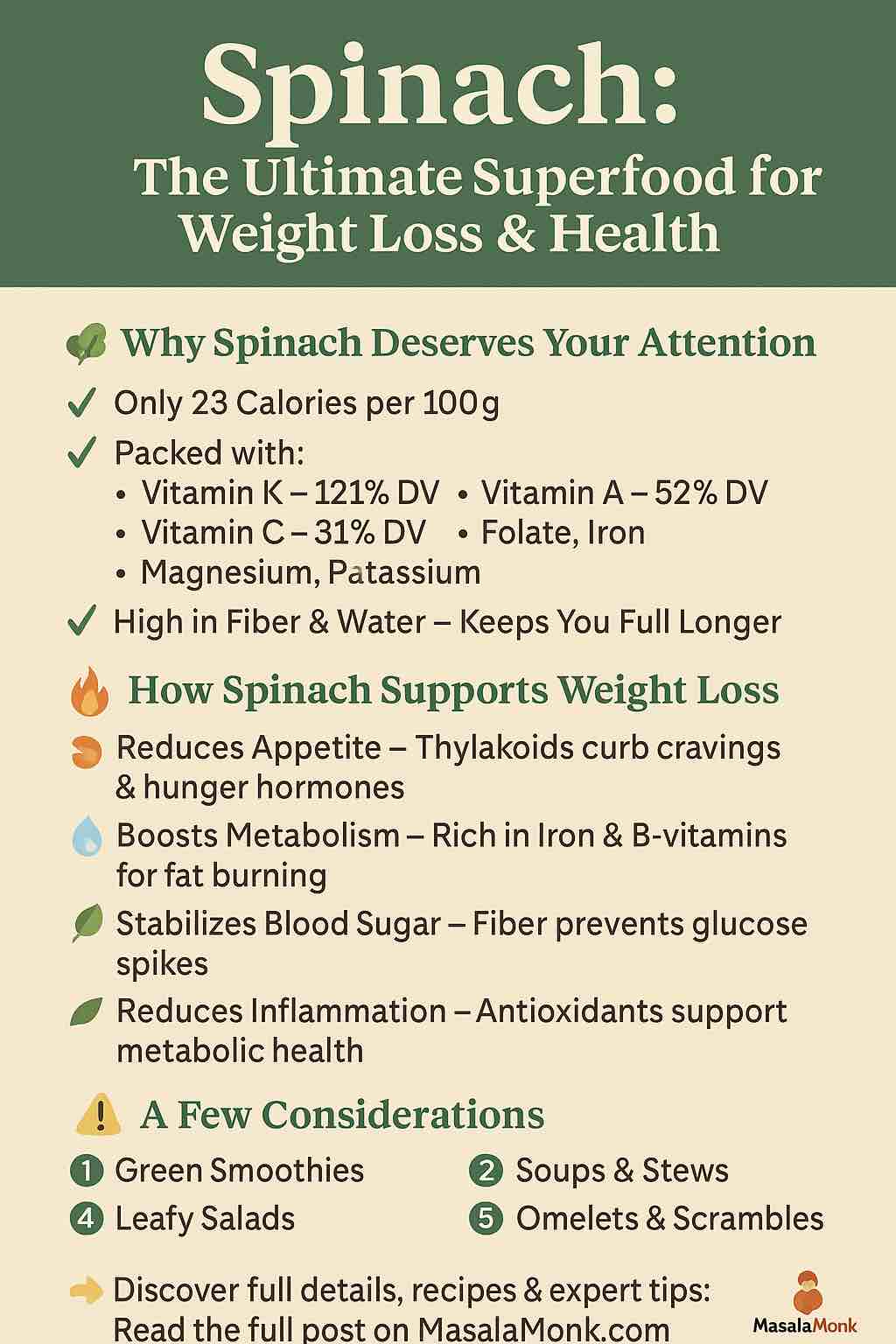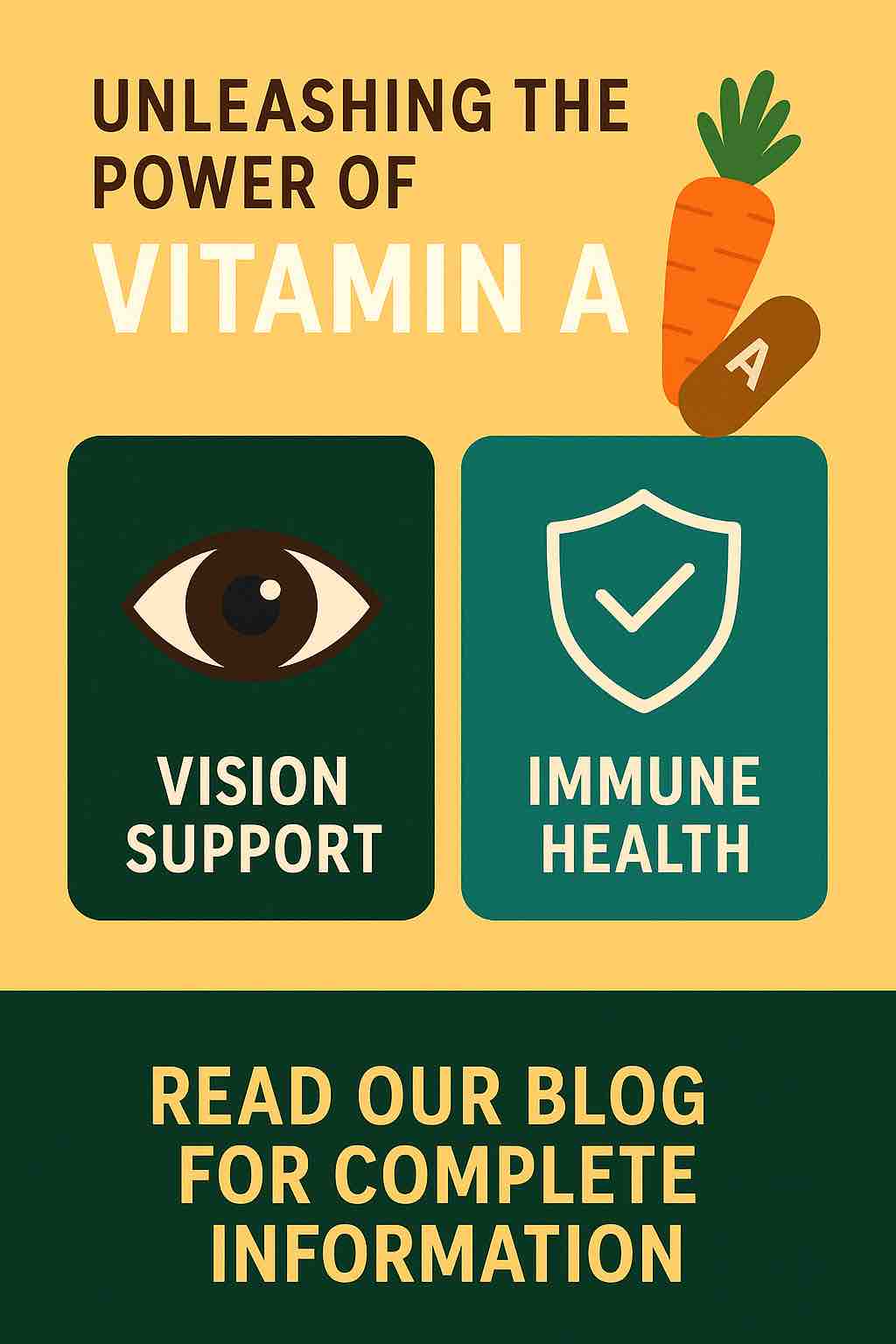
When you bite into a ripe cantaloupe on a hot summer day, you’re probably thinking more about its sweet, refreshing flavor than its health impact. But beyond being a picnic staple or smoothie add-in, cantaloupe (Cucumis melo) is a nutritional powerhouse with a surprising range of benefits—alongside a few caveats you should know about.
This guide dives deep into the latest research, practical advice, and everyday tips to help you get the most out of this vibrant fruit—safely and deliciously.
🍈 What Is Cantaloupe?
Cantaloupe, also known as muskmelon or rockmelon in some regions, belongs to the Cucurbitaceae family—the same as cucumbers, pumpkins, and squash. Its juicy orange flesh and netted rind make it instantly recognizable, but there’s more to this fruit than meets the eye.
- Season: May to September (peak: June–August)
- Taste: Mildly sweet, aromatic, refreshing
- Calories: ~60 kcal per cup (160g)
✅ Top 7 Health Benefits of Cantaloupe
1. Ultra-Hydrating
Cantaloupe is over 90% water, making it a perfect snack to stay hydrated—especially in summer months. It’s also loaded with electrolytes like potassium and magnesium that support fluid balance and muscle function.
🧠 Fun fact: One cup of cantaloupe contains more water than a small glass of water.
2. Boosts Immunity & Skin Health
One serving provides 65 mg of vitamin C—about 72% of your daily value—which helps your body:
- Fight off infections
- Produce collagen for skin elasticity
- Heal wounds faster
Combined with beta-carotene (a precursor to vitamin A), cantaloupe also protects your skin from UV damage and dryness.
3. Supports Eye Health
Cantaloupe is rich in carotenoids—beta-carotene, lutein, and zeaxanthin—all of which are vital for:
- Preventing age-related macular degeneration (AMD)
- Reducing risk of cataracts
- Maintaining sharp, clear night vision
📊 One cup of cantaloupe offers roughly 30% of the daily vitamin A requirement.
4. Aids Digestion & Gut Health
Thanks to a combination of soluble fiber and water, cantaloupe:
- Promotes regular bowel movements
- Helps prevent constipation
- Supports gut microbiome with prebiotic fiber
5. Heart and Blood Pressure Support
Cantaloupe contains around 10% of your daily potassium needs per cup. Potassium helps:
- Lower blood pressure by counteracting sodium
- Maintain healthy heart rhythms
- Support kidney function
Paired with fiber and antioxidants, it’s a heart-healthy snack.
6. May Reduce Risk of Chronic Disease
Emerging research (2025) highlights cantaloupe’s rich polyphenol content, which may:
- Inhibit oxidative stress and inflammation
- Reduce risk of some cancers (e.g., prostate, colorectal)
- Support healthy metabolic aging
7. Weight-Friendly Snack
At just 60 calories per cup, cantaloupe is:
- Low in fat and sodium
- Naturally sweet (without added sugar)
- High in volume, helping you feel full
It’s a dieter’s dream—provided you watch your portion size.
⚠️ Side Effects & Safety Concerns
1. Bacterial Contamination Risks
The rough, netted rind of cantaloupe is notorious for harboring pathogens like Salmonella and Listeria, especially in pre-cut or unrefrigerated fruit.
🔒 Safe Handling Tips:
- Wash thoroughly: Use a scrub brush under running water before cutting.
- Clean knives and cutting boards.
- Refrigerate immediately: Store sliced cantaloupe at ≤4°C (40°F), eat within 2–3 days.
- Avoid pre-cut fruit if immunocompromised, elderly, or pregnant.
⚠️ Recent 2025 outbreaks underscore the need for vigilance with food safety.
2. Oral Allergy Syndrome (OAS)
People with pollen allergies (especially ragweed) may react to cantaloupe with:
- Itchy mouth or throat
- Swollen lips or tongue
- Digestive upset
This cross-reaction is called oral allergy syndrome. Cooking the fruit can reduce the allergenicity.
3. Not Ideal for Everyone
- People with kidney disease may need to monitor potassium intake.
- Diabetics should be aware of natural sugar content (~13g per cup) and balance accordingly.
🧃 How to Enjoy Cantaloupe (Safely and Deliciously)
🔪 Buying & Storing Tips
- Look for: Golden-beige rind, sweet aroma, slight softness at the blossom end
- Avoid: Cracks, bruises, greenish hue
- Storage: Whole melon—room temp; cut melon—fridge only
🍽️ Serving Ideas
- Breakfast: Mix with Greek yogurt, chia seeds, and mint.
- Smoothie: Blend with coconut water, lime, and a hint of ginger.
- Salad: Toss with cucumber, feta, arugula, and balsamic glaze.
- Frozen treats: Puree and freeze into refreshing popsicles.
- Grilled: Lightly char slices and top with chili-lime salt.
🧪 The Future of Cantaloupe: What’s Coming?
Researchers are exploring:
- Antimicrobial surface treatments for longer shelf life
- Safer packaging innovations for pre-cut melon
- Nutrient-density breeding to boost antioxidant content naturally
- QMRA modeling (Quantitative Microbial Risk Assessment) to manage supply chain safety more precisely
These advances could make cantaloupe even healthier—and safer—for mass consumption.
📝 Final Thoughts
Cantaloupe isn’t just a tasty side dish—it’s a versatile, nutrient-dense fruit that supports hydration, immunity, vision, and heart health. While it’s not without risks, safe handling, portion control, and awareness of allergies can help you enjoy this summer star to the fullest.
So next time you pass by the melon aisle, don’t just walk past. Grab a cantaloupe—and give your health a juicy little upgrade.
📚 Sources:
- Cleveland Clinic (2025)
- VeryWell Health (2025)
- Healthline & Health.com
- FDA & CDC Food Safety Bulletins (2024–2025)
- Scientific journals via ScienceDirect & MedRxiv (2025)
❓ Frequently Asked Questions (FAQs)
1. How much cantaloupe can I safely eat per day?
Answer: About 1 cup (160g) is a safe and healthy serving for most people. It provides essential vitamins without overloading sugar or potassium. People with kidney issues or diabetes should consult a doctor about portion size.
2. Should I wash cantaloupe before cutting it?
Answer: Absolutely. Even though you don’t eat the rind, bacteria can transfer from the surface to the flesh during cutting. Use a scrub brush and rinse under running water before slicing.
3. Can cantaloupe cause food poisoning?
Answer: Yes, especially if the rind is contaminated and not washed properly. Listeria and Salmonella outbreaks have been linked to cantaloupe, particularly pre-cut or unrefrigerated fruit.
4. Is cantaloupe good for hydration?
Answer: Yes. Cantaloupe is over 90% water and also contains electrolytes like potassium, making it excellent for staying hydrated during summer or after workouts.
5. Is cantaloupe safe for babies and toddlers?
Answer: Generally yes—once they’re old enough for solids (usually after 6 months). Cut into small, soft, manageable pieces and monitor closely. Avoid giving pre-cut store-bought melon due to food safety risks.
6. Can diabetics eat cantaloupe?
Answer: Yes, in moderation. Cantaloupe has natural sugars (~13g per cup) and a low glycemic load, but portion control is key. Pair it with protein or healthy fats to reduce blood sugar spikes.
7. Is cantaloupe better than watermelon nutritionally?
Answer: Both are hydrating and low in calories. Cantaloupe offers more vitamin A and C, while watermelon is higher in lycopene (an antioxidant). The best choice depends on your nutritional needs.
8. Why does cantaloupe make my mouth itch?
Answer: You may have oral allergy syndrome, especially if you’re allergic to ragweed or pollen. The proteins in cantaloupe mimic those in pollen, triggering an immune response.
9. How should I store cut cantaloupe?
Answer: Store it in an airtight container in the refrigerator at 4°C (40°F) or below. Eat within 2–3 days, and discard any pieces left at room temperature for over 2 hours.
10. Does cooking or freezing cantaloupe reduce its benefits?
Answer: Freezing retains most nutrients but may affect texture. Cooking can slightly reduce vitamin C but also helps reduce allergenic compounds, making it safer for people with OAS.













